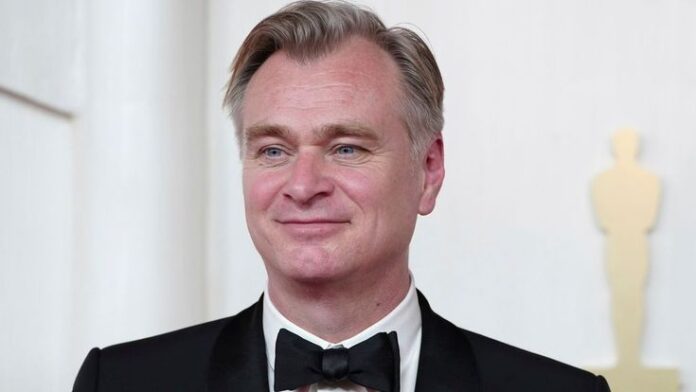In a rare and captivating conversation, acclaimed filmmaker Christopher Nolan opened up about his highly anticipated upcoming project, Eternal Paradox, a film that promises to push the boundaries of storytelling and visual innovation. Known for his cerebral narratives and intricate timelines, Nolan’s latest venture dives deep into the human perception of time, memory, and identity — themes that have long defined his cinematic style.
During the interview, Nolan discussed how Eternal Paradox marks a creative evolution in his career. “This film explores what it truly means to experience time as an emotion rather than a sequence,” he shared. “I wanted to blend science fiction and human drama in a way that feels both intimate and epic. It’s a story about how memory shapes who we are, and how the choices we make ripple through time.” The director hinted that while the film shares thematic DNA with Inception and Interstellar, it introduces a fresh perspective that relies more on character-driven emotion than visual spectacle alone.
Filming for Eternal Paradox took place across multiple countries, including Iceland, Japan, and New Zealand. Nolan emphasized his continued preference for practical effects over computer-generated imagery. “I’ve always believed that audiences can feel the difference between something real and something digital,” he said. “For one key sequence, we built a rotating set to simulate gravitational distortion. It was physically demanding for the actors, but the results are astonishingly authentic.” This commitment to realism has been a signature of Nolan’s work, earning him respect from both critics and peers.
The director also praised his cast, which features a blend of established stars and rising talent. Although he kept plot details under wraps, Nolan revealed that the lead role will be played by Cillian Murphy, who reunites with him after the success of Oppenheimer. “Cillian brings a rare combination of intensity and vulnerability,” Nolan noted. “He’s perfect for a character who must question his own sense of reality.” Other cast members include Florence Pugh, John David Washington, and newcomer Mei Tanaka, whose performance Nolan described as “mesmerizing.”
Music and sound design — essential elements of any Nolan film — will once again play a crucial role in shaping the audience’s experience. Composer Ludwig Göransson, who won an Oscar for Oppenheimer, returns to collaborate on a haunting, time-bending score. “Ludwig has created something that feels alive,” Nolan said. “The music doesn’t just accompany the scenes; it interacts with them, bending and looping in ways that mirror the narrative.”
As for what audiences can expect, Nolan promises a cinematic journey that challenges perception while delivering emotional depth. “It’s not just about mind-bending concepts,” he explained. “At its heart, Eternal Paradox is a love story — not in the romantic sense, but in the way we love our memories, our choices, and our sense of purpose.”
With post-production nearing completion and a release date slated for summer 2026, anticipation is building among fans and critics alike. Early screenings reportedly left studio insiders speechless, describing the film as Nolan’s “most personal yet profoundly complex work.”
As the world waits, one thing is certain: Christopher Nolan’s Eternal Paradox will once again redefine what cinema can achieve. Through his meticulous craftsmanship and visionary storytelling, Nolan continues to remind us why he remains one of the most influential directors of the modern era.


